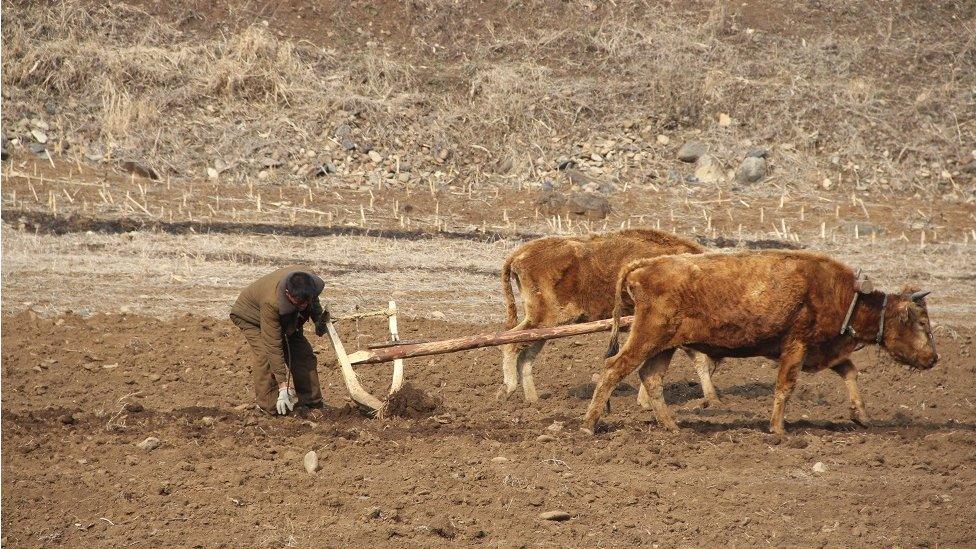North Korea: UN gains 'unprecedented access' during visit
- Published

People are going hungry in North Korea, the head of the WFP said, but are not starving
The head of the UN's World Food Programme (WFP) believes there is a "sense of optimism" among North Korea's leaders after enjoying what he said was unprecedented access to the country.
David Beasley spent two days in the capital, Pyongyang, and two outside it, accompanied by government minders.
He said the country was working hard to meet nutritional standards, and hunger was not as high as in the 1990s.
"There is a sense of turning a new page in history," he told the BBC.
Relations between North Korea and the rest of the world have seen a dramatic shift.
Last year the North Korean government carried out a string of nuclear and missile tests.
But next month, its leader Kim Jong-un will meet US President Donald Trump, in what would be the first time a sitting US president has ever met a North Korean leader.
Confirmation of the meeting came after landmark talks between North and South Korea. Mr Trump announced the details of the meeting - in Singapore on 12 June - earlier this week, hours after he welcomed home three US detainees released from North Korea.
What did the UN see in North Korea?
David Beasley visited North Korea from 8-11 May. The visit included trips to WFP-funded projects - a children's nursery in South Hwanghae province and a fortified biscuit factory in North Pyongyan province.
He told the BBC's Radio 4 programme Today that the farming he saw in the countryside reflected the fact that only about a fifth of the land is arable.
"One of the most powerful things that I saw was out in the countryside - it's spring, they're planting - there's not mechanisation, you've got oxen pulling ploughs, men and women in the fields," he said.

David Beasley visited WFP programmes in the North Korean countryside
"It's very structured, very organised, every foot and inch of dirt is being toiled with rakes and hoes and shovels and they're literally planting crops up to the edge of the road, down embankments, using every available space, because it is a land that's mostly mountainous.
"I didn't see starvation like you had in the famine back in the 1990s, that's the good news. But is there a hunger issue, is there under-nutrition? There's no question about it."
Between 1994 and 1998, hundreds of thousands of people are believed to have died in North Korea in a widespread famine.
After drought last year, the UN said seven in 10 North Koreans were relying on food aid, while four in 10 were malnourished.
Last month the UN requested $111m in aid funding to help people in North Korea. The US has offered to help rebuild the country, on condition of denuclearisation.
How do North and South Korean economies compare?
Daily life in the two countries couldn't be more different.
Four defectors talk about what life is like in North Korea
After the end of the Korean war in 1953 the South, an ally of the US, embraced a capitalist philosophy. It has developed into one of Asia's most affluent nations.
A government-sponsored industrial push in the 1960s led to huge corporations like Samsung and Hyundai being created.

Key figures:
Population: 51.2m in South Korea; 25.4m in North Korea
GDP: $1.4tn - South Korea; less than $20bn - North Korea
Life expectancy: 82 years - South Korea; 70 years - North Korea

South Korea is one of the world's top 20 economies, with GDP of $1.4tn (£1tn).
By contrast, North Korea's GDP is less than $20bn, placing it well outside the top 100 economies.
It has a communist system, but capitalism is creeping into the country.
There are things to buy - but only for some people, those who have money. The majority of people in North Korea live in poverty.
Kim Jong-un has made clear that development is a priority.
- Published12 May 2018
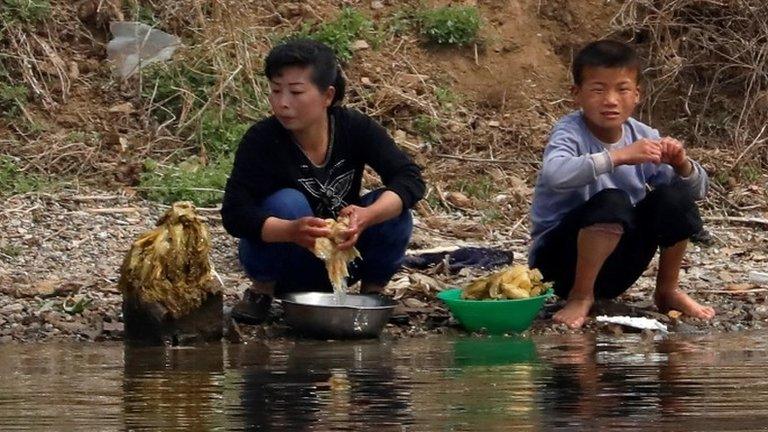
- Published28 April 2018
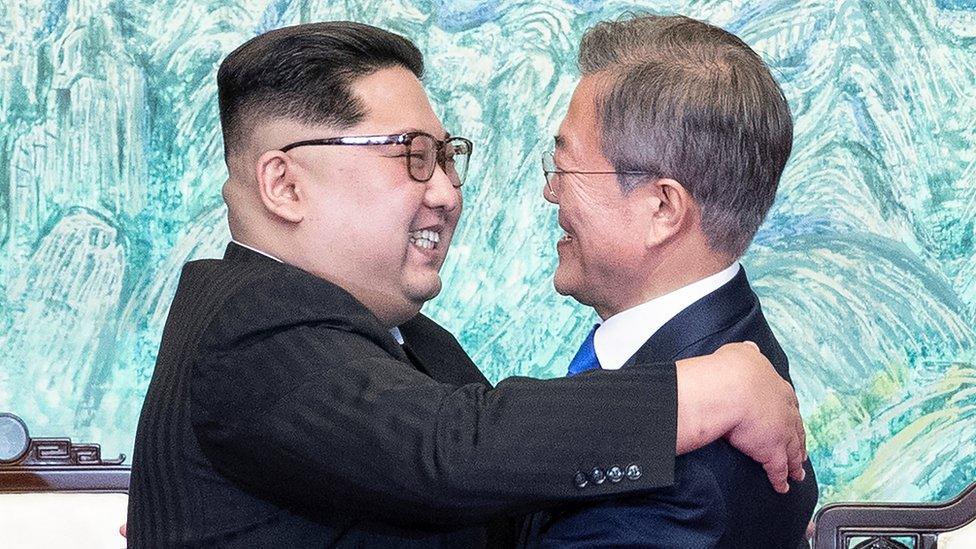
- Published10 May 2018

- Published28 April 2018
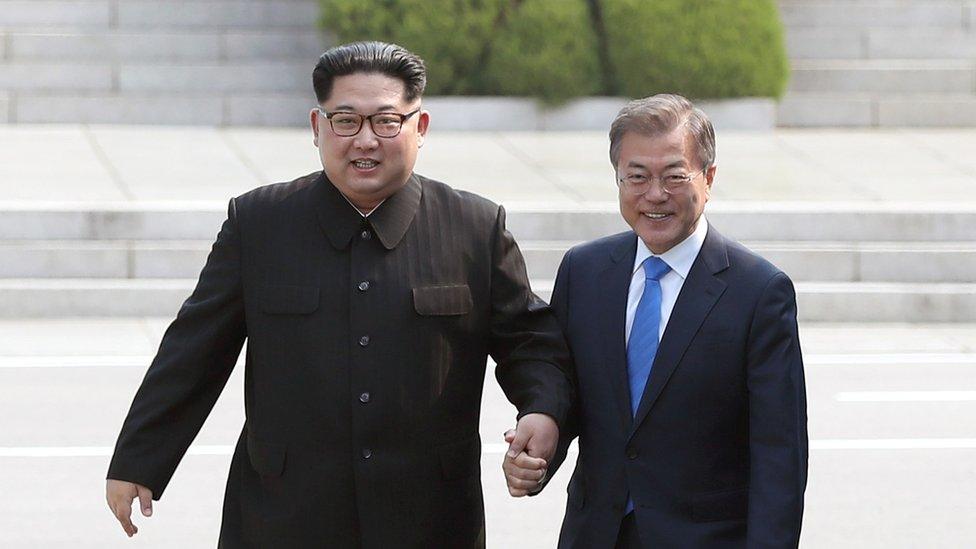
- Published22 March 2017
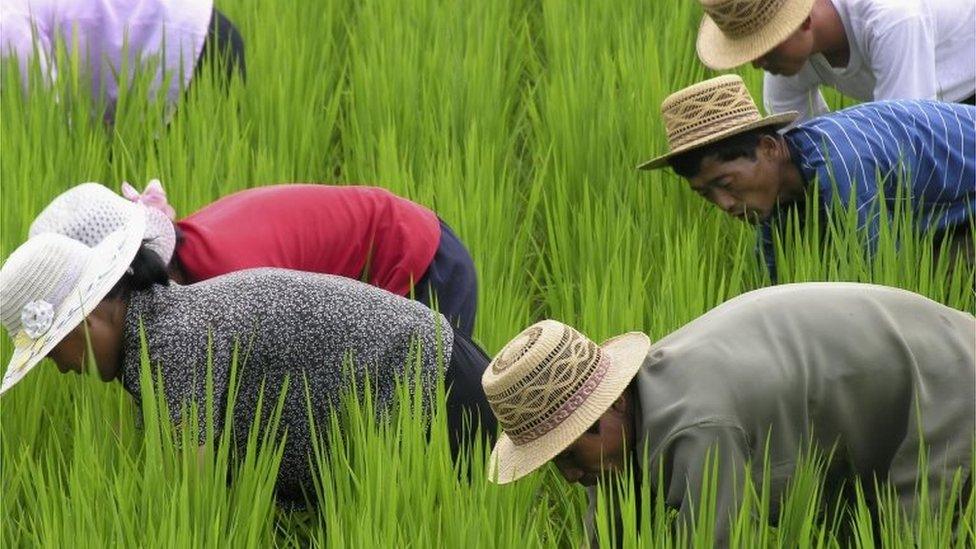
- Published20 July 2017
